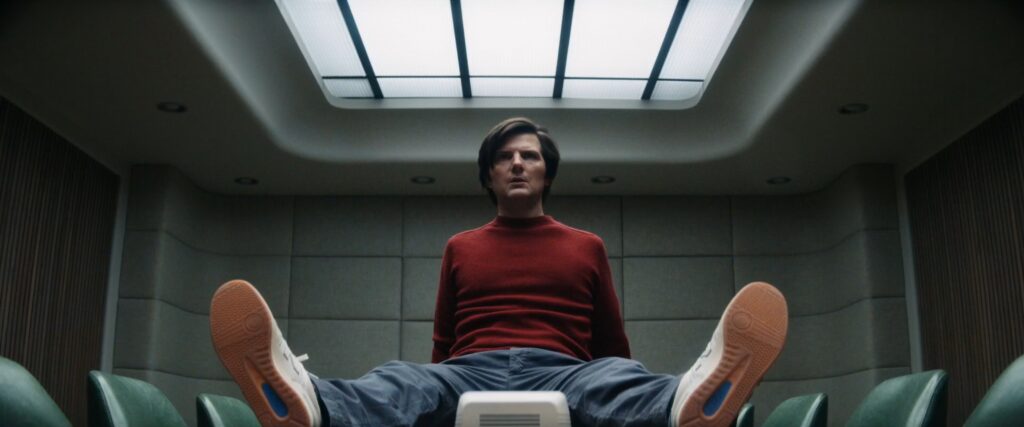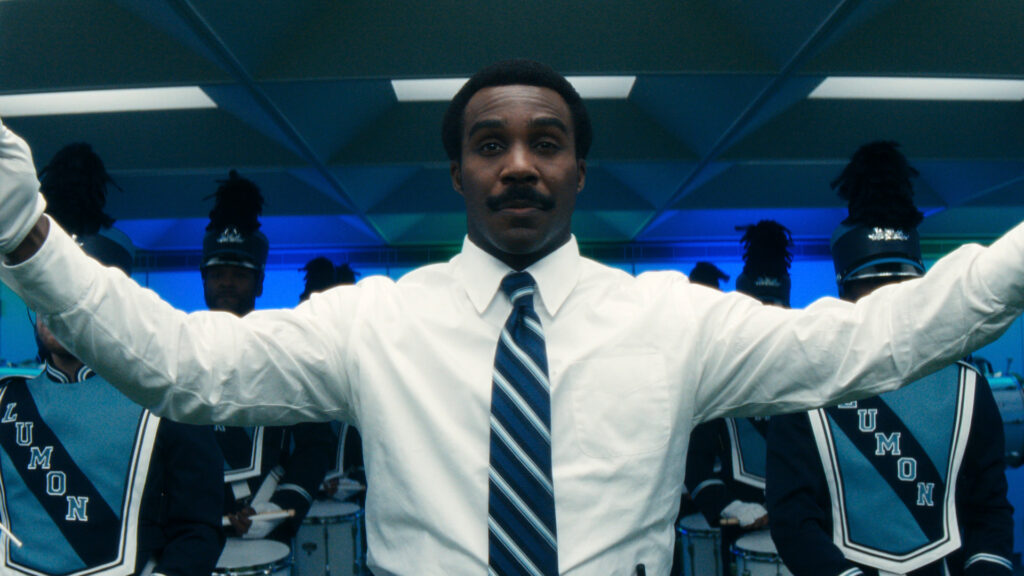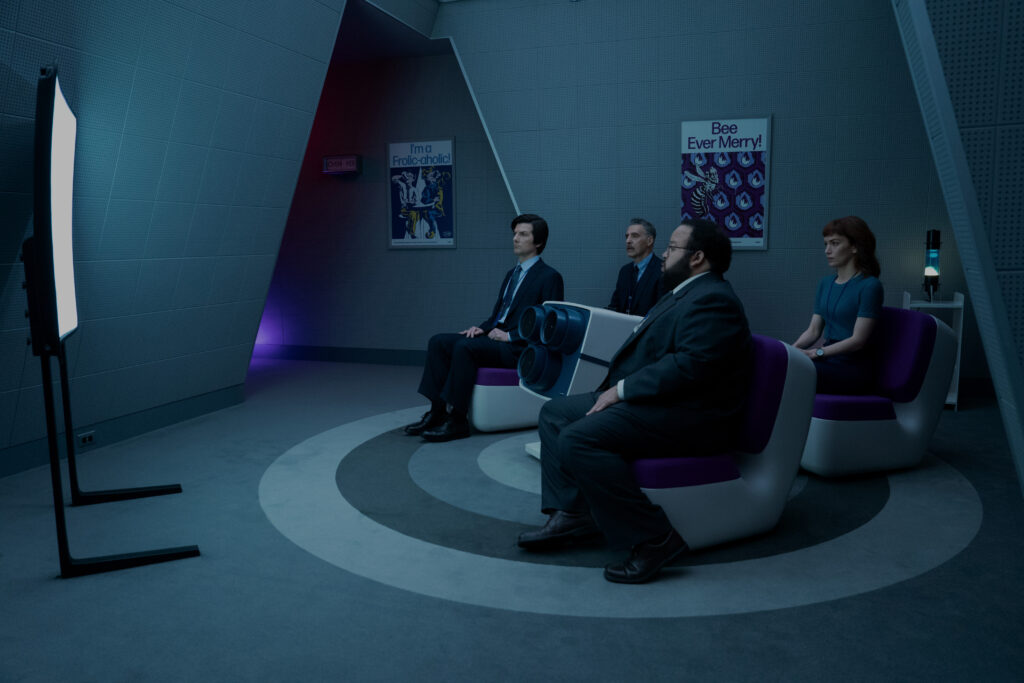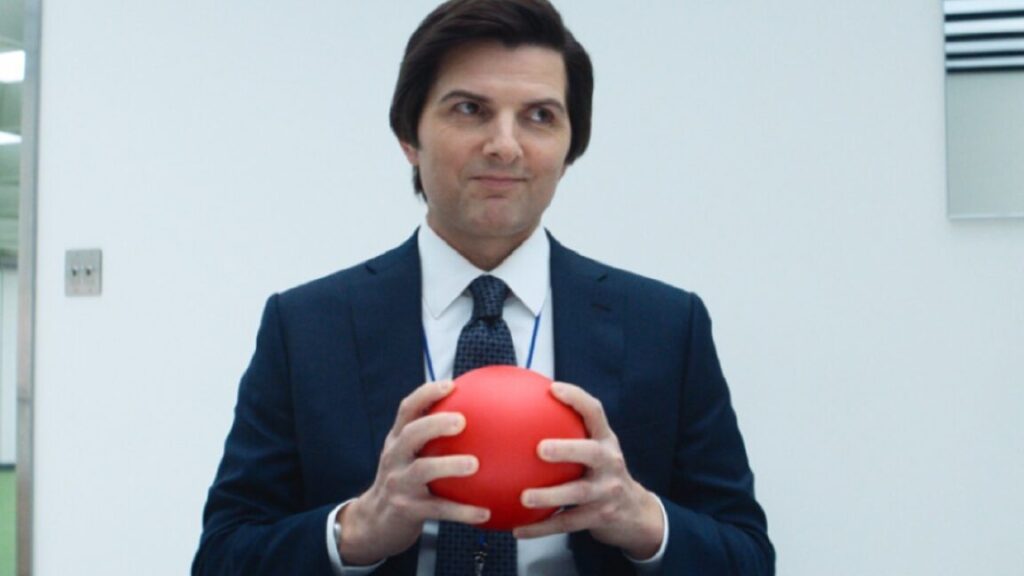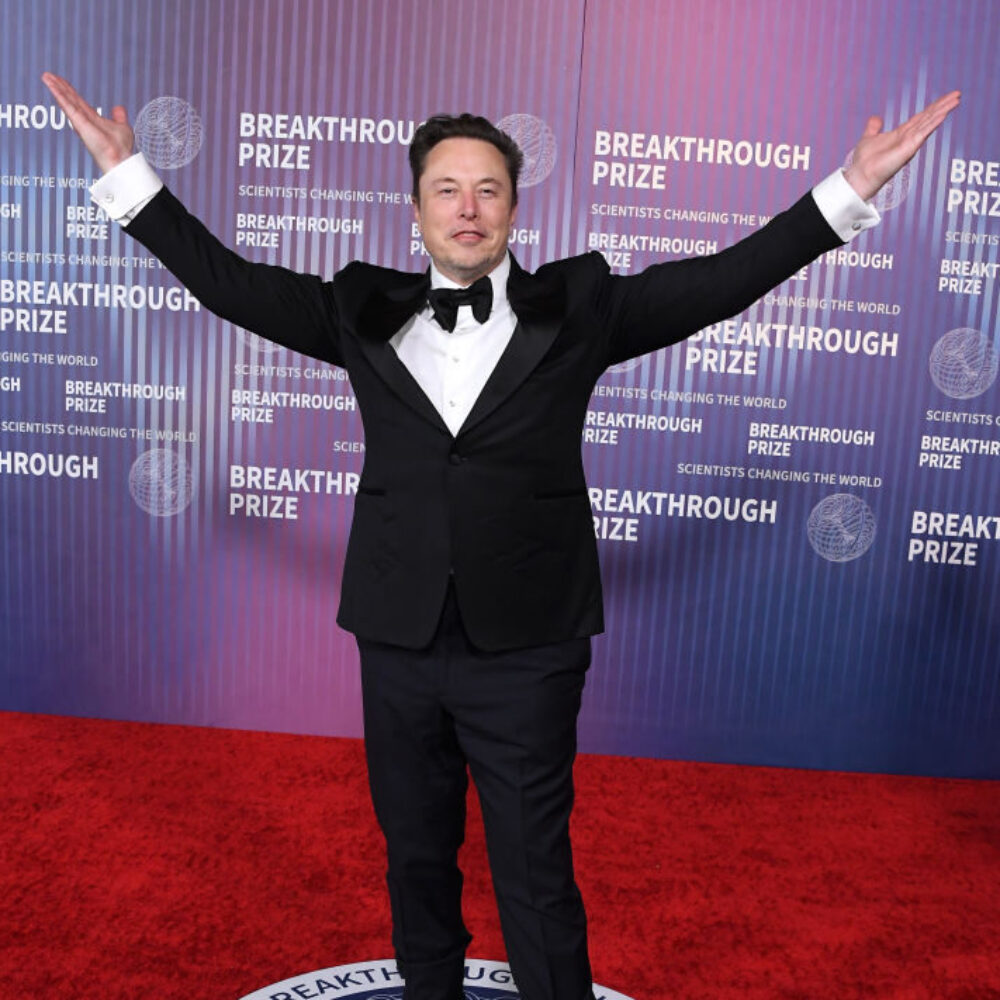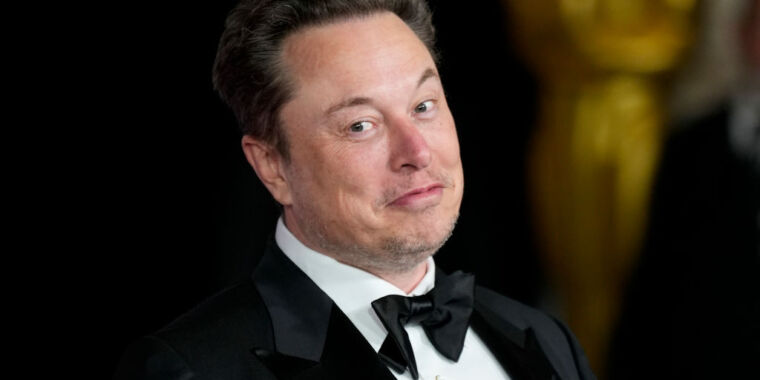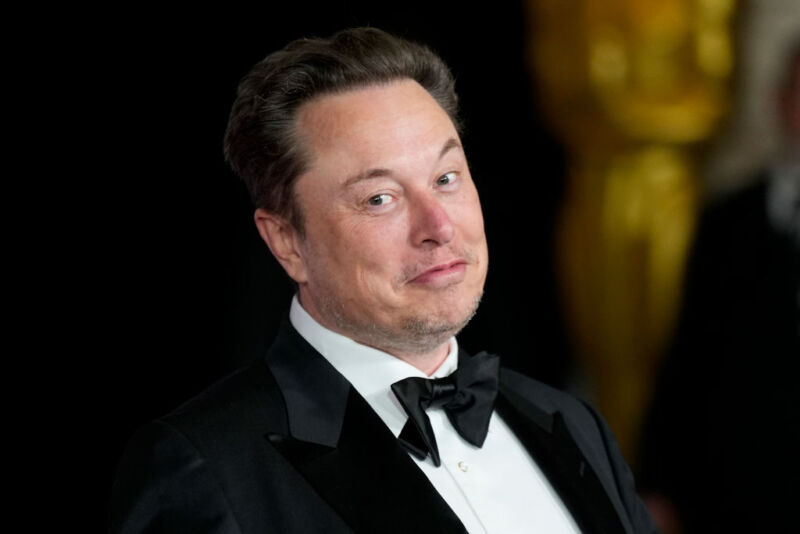Praise Kier for Severance season 2! Let’s discuss.
Severance has just wrapped up its second season. I sat down with fellow Ars staffers Aaron Zimmerman and Lee Hutchinson to talk through what we had just seen, covering everything from those goats to the show’s pacing. Warning: Huge spoilers for seasons 1 and 2 follow!
Nate: Severance season 1 was a smaller-scale, almost claustrophobic show about a crazy office, its “waffle parties,” and the personal life of Mark Scout, mourning his dead wife and “severing” his consciousness to avoid that pain. It followed a compact group of characters, centered around the four “refiners” who worked on Lumon’s severed floor. But season 2 blew up that cozy/creepy world and started following more characters—including far more “outies”—to far more places. Did the show manage to maintain its unique vibe while making significant changes to pacing, character count, and location?
Lee: I think so, but as you say, things were different this time around. One element that I’m glad carried through was the show’s consistent use of a very specific visual language. (I am an absolute sucker for visual storytelling. My favorite Kubrick film is Barry Lyndon. I’ll forgive a lot of plot holes if they’re beautifully shot.) Season 2, especially in the back half, treats us to an absolute smorgasbord of incredible visuals—bifurcated shots symbolizing severance and duality, stark whites and long hallways, and my personal favorite: Chris Walken in a black turtleneck seated in front of a fireplace, like Satan holding court in Hell. The storytelling might be a bit less focused, but it looks great.
So many visual metaphors in one frame. Credit: AppleTV+
Aaron: I think it succeeded overall, with caveats. The most prominent thing lost in the transition was the tight pacing of the first season; while season 2 started and ended strong, the middle meandered quite a bit, and I’d say the overall pacing felt pretty off. Doing two late-season “side quest” episodes (Gemma/Mark and Cobel backstories) was a bit of a drag. But I agree with Lee—Severance was more about vibes than narrative focus this season.
Nate: The “side quests” were vocally disliked by a subsection of the show’s fandom, and it certainly is an unusual choice to do two episodes in a row that essentially leave all your main characters to the side. But I don’t think these were really outliers. This is a season, for instance, that opened with a show about the innies—and then covered the exact same ground in episode two from the outies’ perspective. It also sent the whole cast off on a bizarre “ORTBO” that took an entire episode and spent a lot of time talking about Kier’s masturbating, and possibly manufactured, twin. (!)
Still, the “side quest” episodes stood out even among all this experimentation with pace and flow. But I think the label “side quest” can be a misnomer. The episode showing us the Gemma/Mark backstory not only brought the show’s main character into focus, it revealed what was happening to Gemma and gave many new hints about what Lumon was up to. In other words—it was about Big Stuff.
Even when we’re outside, the show sticks to a palette of black and white and cold. Winter is almost as much of a character in Severance as our four refiners are. Credit: AppleTV+
The episode featuring Cobel, in contrast, found time for long, lingering drone shots of the sea, long takes of Cobel lying in bed, and long views of rural despair… and all to find a notebook. To me, this seemed much more like an actual “side quest” that could have been an interwoven B plot in a more normal episode.
Lee: The “side quest” I didn’t all mind was episode 7, “Chikhai Bardo,” directed by the show’s cinematographer Jessica Lee Gagné. The tale of Mark and Gemma’s relationship—a tale begun while donating blood using Lumon-branded equipment, with the symbolism of Lumon as a blood-hungry faceless machine being almost disturbingly on-the-nose—was masterfully told. I wasn’t as much of a fan of the three episodes after that, but I think that’s just because episode 7 was just so well done. I like TV that makes me feel things, and that one succeeded.
Aaron: Completely agree. I love the Gemma/Mark episode, but I was very disappointed with the Cobel episode (it doesn’t help that I dislike her as a character generally, and the whole “Cobel invented severance!” thing seemed a bit convenient and unearned to me). I think part of the issue for me was that the core innie crew and the hijinks they got up to in season 1 felt like the beating heart of the show, so even though the story had to move on at some point (and it’s not going back—half the innies can’t even be innies anymore), I started to miss what made me fall in love with the show.
Harmony Cobel comes home to the ether factory. Credit: AppleTV+
Lee: I get the narrative motivation behind Cobel having invented the severance chip (along with every line of code and every function, as she tells us), but yeah, that was the first time the show threw something at me that I really did not like. I see how this lets the story move Cobel into a helper role with Mark’s reintegration, but, yeah, ugh, that particular development felt tremendously unearned, as you say. I love the character, but that one prodded my suspension of disbelief pretty damn hard.
Speaking of Mark’s reintegration—I was so excited when episode three (“Who is Alive?”) ended with Mark’s outie slamming down on the Lumon conference room table. Surely now after two catch-up episodes, I thought, we’d get this storyline moving! Having the next episode (“Woe’s Hollow”) focusing on the ORTBO and Kier’s (possibly fictional) twin was a little cheap, even though it was a great episode. But where I started to get really annoyed was when we slide into episode five (“Trojan’s Horse”) with Mark’s reintegration apparently stalled. It seems like from then to the end of the season, reintegration proceeded in fits and starts, at the speed of plot rather than in any kind of ordered fashion.
It was one of the few times where I felt like my time was being wasted by the showrunners. And I don’t like that feeling. That feels like Lost.
Kind of wish they’d gone a little harder here. Credit: AppleTV+
Aaron: Yes! Mark’s reintegration was handled pretty poorly, I think. Like you said, it was exciting to see the show go there so early… but it didn’t really make much difference for the rest of the season. It makes sense that reintegration would take time—and we do see flashes of it happening throughout the season—but it felt like the show was gearing up for some wild Petey-level reintegration stuff that just never came. Presumably that’s for season 3, but the reintegration stuff was just another example of what felt like the show spinning its wheels a bit. And like you said, Lee, when it feels like a show isn’t quite sure what to do with the many mysteries it introduces week after week, I start to think about Lost, and not in a good way.
The slow-rolled reintegration stuff was essential for the finale, though. Both seasons seemed to bank pretty hard on a “slow buildup to an explosive finale” setup, which felt a little frustrating this season (season 1’s finale is one of my favorite TV show episodes of all time).
But I think the finale worked. Just scene after scene of instantly iconic moments. The scene of innie and outtie Mark negotiating through a camcorder in that weird maternity cabin was brilliant. And while my initial reaction to Mark’s decision at the end was anger, I really should have seen it coming—outtie Mark could not have been more patronizing in the camcorder conversation. I guess I, like outtie Mark, saw innie Mark as being somewhat lesser than.
What did you guys think of the finale?
Nate: A solid effort, but one that absolutely did not reach the heights of season 1. It was at its best when characters and events from the season played critical moments—such as the altercation between Drummond, Mark, and Feral Goat Lady, or the actual (finally!) discovery of the elevator to the Testing Floor.
But the finale also felt quite strange or unbalanced in other ways. Ricken doesn’t make an appearance, despite the hint that he was willing to retool his book (pivotal in season 1) for the Lumon innies. Burt doesn’t show up. Irving is gone. So is Reghabi. Miss Huang was summarily dismissed without having much of a story arc. So the finale failed to “gather up all its threads” in the way it did during season one.
And then there was that huge marching band, which ups the number of severed employees we know about by a factor of 50x—and all so they could celebrate the achievements of an innie (Mark S.) who is going to be dismissed and whose wife is apparently going to be killed. This seemed… fairly improbable, even for Lumon. On the other hand, this is a company/cult with an underground sacrificial goat farm, so what do I know about “probability”? Speaking of which, how do we feel about the Goat Revelations ™?
This is Emile, and he must be protected at all costs. Credit: AppleTV+
Lee: I’m still not entirely sure what the goat revelations were. They were being raised in order to be crammed into coffins and sacrificed when… things happen? Poor little Emile was going to ride to the afterlife with Gemma, apparently, but, like… why? Is it simply part of a specifically creepy Lumontology ritual? Emile’s little casket had all kinds of symbology engraved on it, and we know goats (or at least “the ram”) symbolizes Malice in Kier’s four tempers, but I’m still really not getting this one.
Aaron: Yeah, you kind of had to hand-wave a lot of the stuff in the finale. The goats just being sacrificial animals made me laugh—“OK, I guess it wasn’t that deep.” But it could be that we don’t really know their actual purpose yet.
Perhaps most improbable to me was that this was apparently the most important day in Lumon history, and they had basically one security guy on the premises. He’s a big dude—or was (outtie Mark waking up mid-accidental-shooting cracked me up)—but come on.
Stuff like the marching band doesn’t make a lick of sense. But it was a great scene, so, eh, just go with it. That seems to be what Severance is asking us to do more and more, and honestly, I’m mostly OK with that.
This man can do anything. Credit: AppleTV+
Nate: Speaking of important days in Lumon history… what is Lumon up to, exactly? Jame Eagen spoke in season 1 about his “revolving,” he watched Helena eat eggs without eating anything himself, and he appears on the severed floor to watch the final “Cold Harbor” test. Clearly something weird is afoot. But the actual climactic test on Gemma was just to see if the severance block could hold her personalities apart even when facing deep traumas.
However, (as Miss Casey) she had already been in the presence of her husband (Mark S.), and neither of them had known it. So the show seems to suggest on the one hand that whatever is happening on the testing floor will change the world. But on the other hand, it’s really just confirming what we already know. And surely there’s no need to kidnap people if the goal is just to help them compartmentalize pain; as our current epidemic of drug and alcohol use show, plenty of people would sign up for this voluntarily. So what’s going on? Or, if you have no theories, does the show give you confidence that it knows where it’s going?
Lee: The easy answer—that severance chips will somehow allow the vampire spirit of Kier to jump bodies forever—doesn’t really line up. If Chris Walken’s husband Walter Bishop is to be believed, the severance procedure is only 12 years old. So it’s not that, at least.
Though Nate’s point about Helena eating eggs—and Jame’s comment that he wished she would “take them raw”—does echo something we learned back in season one: that Kier Egan’s favorite breakfast was raw eggs and milk.
Eggiwegs! I would like… to eat them raw? Credit: AppleTV+
Aaron: That’s the question for season 3, I think, and whether they’re able to give satisfying answers will determine how people view this show in the long term. I’ll admit that I was much more confident in the show’s writers after the first season; this season has raised some concerns for me. I believe Ben Stiller has said that they know how the show ends, just not how it gets there. That’s a perilous place to be.
Nate: We’ve groused a bit about the show’s direction, but I think it’s fair to say it comes from a place of love; the storytelling and visual style is so special, and we’ve had our collective hearts broken so many times by shows that can’t stick the landing. (I want those hours back, Lost.) I’m certainly rooting for Severance to succeed. And even though this season wasn’t perfect, I enjoyed watching every minute of it. As we wrap things up, anyone have a favorite moment from season 2? I personally enjoyed Milchick getting salty, first with Drummond and then with a wax statue of Kier.
Lee: Absolutely! I very much want the show to stick the eventual landing. I have to go with you on your take, Nate—Milchick steals the show. Tramell Tillman plays him like a true company man, with the added complexity that comes when your company is also the cult that controls your life. My favorite bits with him are his office decorations, frankly—the rabbit/duck optical illusion statue, showing his mutable nature, and the iceberg poster, hinting at hidden depths. He’s fantastic. I would 100 percent watch a spin-off series about Milchick.
Mr. Milchick’s office, filled with ambiguousness. I’m including Miss Huang in that description, too. Credit: AppleTV+
Aaron: This season gave me probably my favorite line in the whole series—Irv’s venomous “Yes! Do it, Seth!” as Helena is telling Milchick to flip the switch to bring back Helly R. But yeah, Milchick absolutely killed it this season. “Devour feculence” and the drum major scene were highlights, but I also loved his sudden sprint from the room after handing innie Dylan his outtie’s note. Severance can be hilarious.
And I agree, complaints aside, this show is fantastic. It’s incredibly unique, and I looked forward to watching it every week so I could discuss it with friends. Here’s hoping we don’t have to wait three more years for the next season.
Praise Kier for Severance season 2! Let’s discuss. Read More »





